Overview
Nepal College of Travel and Tourism Management (NCTTM) is a Tribhuvan University–affiliated college based in Uttardhoka, Lazimpat, Kathmandu. The college offers three programs focused on tourism and hospitality: Bachelor in Travel and Tourism Management (BTTM), Bachelor of Hotel Management (BHM), and Master of Travel and Tourism Management (MTTM). Established in 1995, NCTTM emphasizes applied learning, field exposure, and industry-linked activities that align with Nepal’s tourism economy.
For students and families comparing options, the essentials include affiliation with Tribhuvan University, clarity of program structure, access to facilities, internship pathways, and the institution’s long record in tourism education.
Quick Highlights
-
Affiliation: Tribhuvan University, Faculty of Management
-
Location: Uttardhoka, Lazimpat, Kathmandu
-
Established: 1995
-
Programs: BTTM, BHM, MTTM (semester structure with field exposure and practical sessions)
-
Core facilities: front-office PMS practice lab; training kitchen; service demo restaurant and bar; housekeeping mock room; AV hall; computer suite; library
-
Admission flow: counseling and application → 90-minute written test → brief psychometric check → small-group discussion → individual interview → selection
-
International exposure: academic partnerships and credit-transfer routes announced by the college (confirm intake-wise details)
Academic Programs Offered
Bachelor in Travel and Tourism Management (BTTM)
BTTM is a four-year undergraduate program under Tribhuvan University that prepares students for roles across the travel value chain. Study areas typically include tourism geography, tour design and operations, ticketing and reservations, destination planning, service quality, entrepreneurship, and basic research methods. Classwork is supported by case tasks and documentation practice that reflect workplace expectations in agencies, tour companies, and destination organizations.
At NCTTM, learners gain field exposure through study visits and short projects arranged during the academic year. Depending on availability, students may complete internships with travel firms, airlines, or hotels, helping them build confidence in client handling, itinerary documentation, and operational procedures.
Who it suits
-
Students interested in tour planning, guiding, ticketing, and customer support
-
Learners aiming for airline or airport service roles
-
Candidates planning for postgraduate study in tourism management
Bachelor of Hotel Management (BHM)
BHM focuses on hotel and resort operations with a balance of theory and practical sessions. Learners progress through rooms division, housekeeping routines, front-office operations, food production, and food and beverage service. NCTTM’s facilities allow service simulations, including front-desk practice on a PMS, culinary labs for basic production and hygiene routines, and a demonstration restaurant and bar for service drills.
The curriculum includes hospitality accounting, service standards, menu planning, marketing basics, and communication. Graduates are prepared for entry-level supervisory roles in hotels, restaurants, and related businesses, or for entrepreneurship in hospitality services.
Master of Travel and Tourism Management (MTTM)
MTTM is a two-year graduate program suited to students and working professionals who want deeper study in tourism policy, destination development, product planning, marketing, operations, and research. The program builds advanced understanding of tourism systems and includes applied components aligned with industry needs in Nepal and the region. Many students use the degree to transition into leadership, consulting, training, or public-sector functions that interface with tourism.
Who it suits
-
BTTM/BHM graduates seeking progression to management roles
-
Professionals aiming to move into destination planning, policy support, or consulting
-
Candidates considering academic or training careers linked to tourism
Admission Process
NCTTM follows a structured sequence. Always confirm the current calendar, forms, and eligibility with the admissions office.
Step 1: Counseling and Campus Visit
Prospective students meet the counseling team to review program structure, fee information, facilities, internship routes, and academic calendars. A campus tour helps applicants understand teaching spaces, labs, and library resources.
Step 2: Application Submission
Candidates submit the enrollment form with supporting documents such as citizenship copy, recent photographs, academic transcripts and certificates (school and +2 or bachelor level as relevant), a short CV, and a brief motivation note for the hospitality track if requested.
Step 3: Written Test
Applicants sit a 90-minute written test covering program-linked fundamentals. The test checks readiness for coursework, including reading comprehension, basic quantitative reasoning, and program-specific concepts.
Step 4: Psychometric Check, Group Discussion, and Interview
A brief psychometric check is followed by a small-group discussion to observe communication and teamwork. An individual interview then assesses program fit and goals.
Step 5: Selection and Enrollment
Selected candidates receive an enrollment slip and the code of conduct document. Admission is confirmed after fee clearance. Orientation and class commencement dates are shared by the college.
Note on master’s entry
Master’s programs under Tribhuvan University may have university-level requirements. Check the latest notices each year. Applicants for BTTM/BHM should also monitor Faculty of Management updates.
Teaching Faculty and Learning Methodology
NCTTM communicates that classes are led by faculty with experience in tourism and hospitality, and that external professionals contribute through guest sessions or short modules. Learning combines lecture inputs with demonstrations, service drills, and project work.
Methods used
-
Classroom foundations: tourism systems, service operations, management basics
-
Labs and workshops: training kitchen and bakery basics, F&B service routines, front-office operations with PMS, housekeeping tasks
-
Field components: site visits, observation studies, small projects with hotels or travel partners when available
-
Assessments: written tests, practical evaluations, presentations, group tasks, and short reports
These methods strengthen communication, documentation, client handling, time management, and standard operating procedures—skills that employers regularly expect in tourism and hospitality roles.
Infrastructure and Learning Facilities
-
Front-office PMS practice lab for check-in, reservation, and basic front-desk routines
-
Training kitchen, service demo restaurant and bar, and a housekeeping mock room for hands-on practice
-
Audio-visual hall, multipurpose hall, and conference hall for presentations, seminars, and events
-
Computer suite with internet access for research and coursework
-
Library with reading materials and reference sections; personal lockers for students
-
Indoor and outdoor activity spaces, on-campus cafeteria, and transport options as available
These facilities support both classroom learning and service practice, giving students regular opportunities to rehearse tasks that mirror workplace situations.
Student Life and Campus Experience
The Lazimpat location places students close to hotels, travel businesses, and diplomatic offices, which helps with networking and observational learning. On campus, the academic year includes talks, workshops, and seasonal events scheduled around teaching periods. Students often combine lectures, lab practice, and small projects during the week, with event duties or field tasks added when planned.
This rhythm helps learners build soft skills—clarity in spoken communication, teamwork, basic record keeping, and presentation skills—alongside service routines used across hotels and travel operations.
Extracurricular Activities (ECA)
-
Language and presentation forums to improve clarity and audience engagement
-
Culinary demonstrations and service showcases coordinated by student groups
-
Destination spotlights, photo features, or map-based displays led by tourism cohorts
-
Volunteering linked to fairs, festivals, or awareness programs in the city
-
Clubs that run small events, quizzes, or hospitality etiquette sessions aligned to the calendar
Specific activities vary by semester. Students should review notices from the program office for current schedules and participation rules.
Scholarships and Financial Support
The college shares notices on scholarships and fee plans through its information channels. Access to bank financing is available for eligible applicants based on lender rules. Since scholarship criteria and quotas can change, candidates should request the latest guidelines, required documents, and application windows from the admissions desk.
Internships and Career Services
NCTTM highlights internship access within Nepal and overseas, subject to intake-wise arrangements. Some cohorts have secured placements ranging from six to twelve months in destinations across Asia and other regions. Placement routes may include hotels, resorts, airline support roles, or travel operations. Timelines, stipends, and eligibility differ by partner and destination.
What students can expect
-
Exposure to day-to-day operations in hotels, travel firms, or airline service offices
-
Supervision and rotation across tasks such as food production/service, front office, housekeeping, or travel desks
-
Performance feedback that may be reflected in academic records or placement notes as per program rules
The college also circulates job leads it receives from industry contacts. Graduates and senior students can apply through standard procedures, with selections handled by employers.
Global Academic Linkages
NCTTM reports links with institutions in the United Kingdom, Austria, the United States, Australia, Canada, Ireland, China, and Thailand. These connections may support guest teaching, short exposure opportunities, or credit-transfer routes depending on the year and the partner. Applicants interested in mobility should request written guidance on eligible modules, credit mapping, and visas for the intended intake.
For a broader view of BTTM and related offerings in Nepal, students can consult overview pages of Tribhuvan University programs to compare structure, entry rules, and progression options across colleges.
Achievements and Institutional Milestones
-
Long record in tourism and hospitality education since 1995 under Tribhuvan University
-
Early role in running dedicated tourism management studies in Nepal
-
Regular seminars, workshops, and activity days featured in academic calendars
-
Alumni active across hotels, travel businesses, airlines, and education, as shared through college communications
When evaluating claims on awards or placements, request cohort-specific data and formal notices for clarity.
Why Choose NCTTM?
-
TU affiliation and decades of teaching in tourism and hospitality
-
Practice-ready spaces, including a PMS lab, training kitchen, service demo restaurant and bar, and a housekeeping mock room
-
Internship routes inside Nepal and abroad, with destinations and durations set intake-wise
-
Academic partnerships and potential credit-transfer options, subject to current agreements
-
Central Kathmandu location close to hotels, travel businesses, and event venues
Admission Checklist
-
Compare programs: BTTM, BHM, and MTTM; check eligibility and entry rules
-
Prepare documents: academic transcripts and certificates, citizenship copy, recent photos, CV, and a short motivation note if asked
-
Track dates for the written test, psychometric check, group discussion, and interview
-
Ask about scholarships, fee plans, and any bank-financing options
-
If mobility is a goal, request written guidance on partner universities, module equivalence, and visa timelines
Conclusion
NCTTM is a Kathmandu-based college with a clear focus on tourism and hospitality, recognized through its Tribhuvan University affiliation and long history since 1995. The programs—BTTM, BHM, and MTTM—combine classroom learning with service practice, field exposure, and internship pathways that align with industry needs.
Students who plan carefully—matching goals to program structure, checking facilities on campus, and verifying scholarships, internship destinations, and partnership details for their intake—can use this information to make a measured, well-documented decision about study and career steps in Nepal’s tourism and hospitality sector.



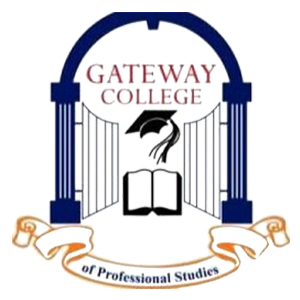
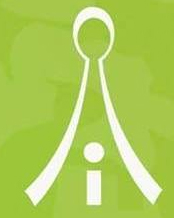

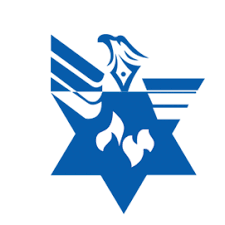
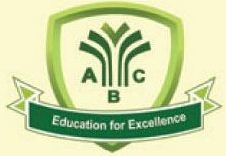
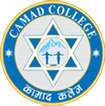









You need to login to comment.